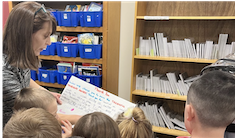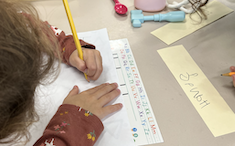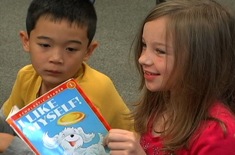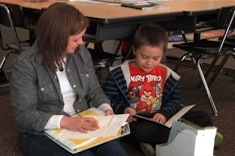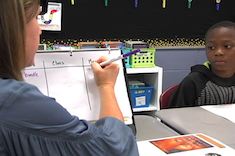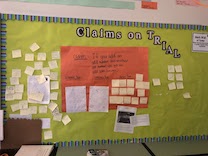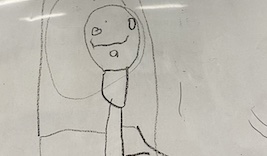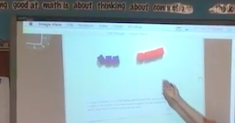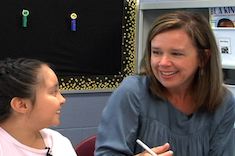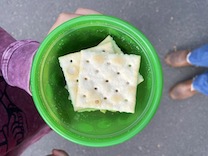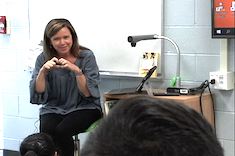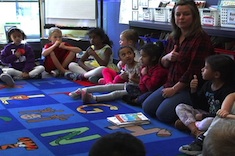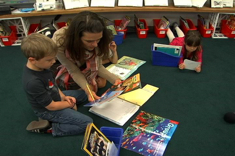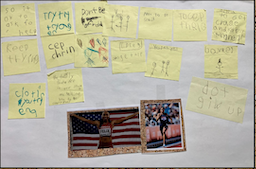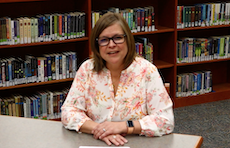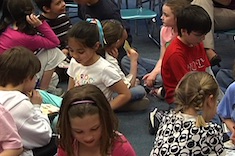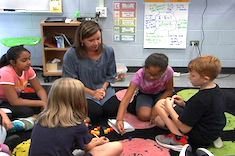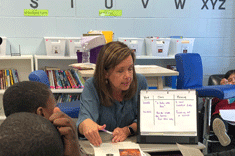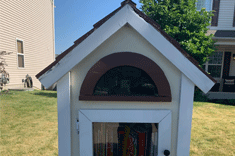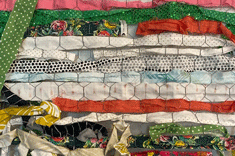Kindergarten
Latest Content
Do the Hard Thing
Becca Burk reminds all of us that one of the important parts of being a teacher is helping students believe they are capable. Becca shares three practical ways to uplift student capability.
Good Work, Writer
Becca Burk asserts that every child can become a writer when given materials, opportunity, and authentic glimpses into what it means to be a writer. Most importantly, though, children need adults who believe they are writers.
Read Aloud Magic
Jen Court reminds us of the power of reading aloud to students and pushes us to remember the importance of planning to use books to engage students and hone teaching points.
Our Brains on Happiness
Molly James shares the compelling research about the happiness advantage by Shawn Achor and two practical practices to make it a reality in her kindergarten classroom.
Conferring Notebook Details
Bitsy Parks opens her conferring notebook and shares powerful ways to use conferring notes to differentiate instruction for students in reading and writing.
How Many? Counting Opportunities in Picture Books
Bitsy Parks shares the importance of counting and a booklist of picture books that lend themselves to counting opportunities.
The Power of an Anchor Chart in a Digital World
Dana Murphy reminds us of the power of an anchor chart in a digital world.
Getting to Know Digital Learners: How Playing with Technology Helps Facilitate Our Identities as Learners
As teachers we do many things to get to know our students as readers and writers and mathematicians. Josie Stewart and Hannah Tills lead us to consider how to get to know our students as digital learners.
Listening for Conjectures
Mallory Messenger shares a routine for hearing student conjectures (in math and other subjects) and a process for giving time for the class to prove or disprove the claims. Download a Conjecture—Prove or Disprove Recording Sheet to collect student conjectures in your classroom.
Our Words Matter: Developing Perseverance in Literacy
Becca Burk reflects on the power of intentional language to build perseverance in students. She shares a booklist designed to give students scripts they need to become brave learners.
Math Debates: A Powerful Sense-Making Routine
Jodie Bailey shares a powerful practice of math debates for students to explore a problem with discussion and evidence to discover the correct solution.
Engaging Kids in Reading Intervention
Dana Murphy shares ways to make reading intervention a high-interest time for students.
Questions to Ask When Reading the Morning Message
Tammy Mulligan guides teachers in a progression to help students identify tricky words, move deeper into word analysis, and develop inferential thinking. Included is a helpful progression chart to guide teachers in helping all students understand that readers encounter problems and can solve the tricky words.
Math Is Everywhere
Bitsy Parks shares an initial read aloud to encourage primary students to develop the ability to see math everywhere.
Nourish a Sense of Belonging
Dana Murphy shares ways to nourish a sense of belonging in all students.
Spontaneous Text Sets
Bitsy Parks wanted to create an intentional read aloud routine that responded to student interests and needs as readers. She shares the way her responsive selection of books led to spontaneous (and powerful) text sets.
Knowing Genres
Mandy Robek reflects on the importance of knowing genres and empowering students to be part of the organization process of the classroom library.
Lifting the Quality of Hands-Down Conversations
Tammy Mulligan leads us through troubleshooting the difficult parts of launching hands-down conversations. This is the third installment of a three-part series about launching hands-down conversations.
How to Begin a Community Circle
Bitsy Parks gives direction in beginning a community circle with primary learners.
Hands-Down Conversations in the Primary Grades
Tammy Mulligan shares the steps to encouraging hands-down conversations in the first days of the school year. This is the second installment of a three-part series about launching hands-down conversations.
Using Video to Launch Hands-Down Conversations
Tammy Mulligan shares many video options to launch conversation skills in her primary classroom.
Opportunities Offered in Book Shopping
Tara Barnett and Kate Mills remind us of the important opportunities offered during book shopping. Giving yourself permission to slow down and see the opportunities that the routines invite for collaboration and reflection will likely make it feel like you’re maximizing your minutes even more.
Holidays: Where Do They Fit in the Classroom?
Bitsy Parks shares the inspiration and practical ways she celebrates and honors holidays from many cultures in her classroom.
Reading Specialists Can Change the Narrative
Cathy Mere shares ways reading specialists can help teachers get excited about striving readers’ growth by intentionally sharing progress and celebrations.
Setting Up the Intervention Room
Dana Murphy guides reading specialists in setting up intervention rooms to welcome readers.
What Matters More
Dana Murphy shares that by asking “What matters most?” she can make decisions that allow her literacy instruction to be student-centered and authentic.
What I Am Reading the First Week of School
Jen Court plans to fill the first days of first grade with experiences around books. Selecting books carefully to create a sense of community in the classroom from the very beginning is the goal of this first-week booklist.
Creating a Classroom Emotional Intelligence Charter
Mandy Robek outlines the process for creating a class Emotional Intelligence Charter. She includes a booklist to help students expand their vocabulary of different emotions.
Intergenerational Booklist
Bitsy Parks shares the process of building a booklist to deepen the connections and synthesis of culture, family structure, and experiences. Use this booklist of 10 picture books to lead a powerful conversation in your classroom and empower young students to grow in their analysis.
Learning Joy
Bitsy Parks shares the story of a striving student, and pinpoints the elements of a rich workshop classroom that supports finding joy in becoming literate.
Browse Content By
Type
Category
- Assessment Tools
- Big Fresh Archives
- Booklists
- Choice Numeracy
- Classroom Design
- Common Core
- Community Building
- Conferring
- Content Literacy
- Digital Literacy
- English Language Learners
- Equity
- Family Relations
- Free Samples
- Guiding Groups
- Leadership
- Literacy Coaches
- Mentor Texts
- Minilessons
- New Teacher Mentors
- Podcasts
- Poetry
- Quote Collections
- Reading Strategies
- Self Care
- Struggling and Striving Learners
- Talking and Listening
- Teacher Study Groups
- Teaching Reading
- Teaching Writing
- Word Study and Vocabulary
Author
- Melissa Quimby
- Nawal Qarooni
- Gwen Blumberg
- Julie Cox
- The Lead Learners
- Hannah Tills
- Josie Stewart
- Ruth Metcalfe
- Mallory Messenger
- Becca Burk
- Jodie Bailey
- Vivian Chen
- Mary Brower
- Tiffany Abbott Fuller
- Stephanie Affinito
- Ruth Ayres
- Leigh Anne Eck
- Heather Fisher
- Shari Frost
- Julie Johnson
- Suzy Kaback
- Gigi McAllister
- Shirl McPhillips
- Melanie Meehan
- Cathy Mere
- Debbie Miller
- Tara Barnett and Kate Mills
- Tammy Mulligan
- Dana Murphy
- Bitsy Parks
- David Pittman
- Brenda Power
- Heather Rader
- Matt Renwick
- Mandy Robek
- Christy Rush-Levine
- Gretchen Schroeder
- Jen Schwanke
- Brian Sepe
- Katherine Sokolowski
- Stella Villalba
- Jennifer Vincent
Grade Level
Choice Literacy Membership
Articles
Get full access to all Choice Literacy article content
Videos
Get full access to all Choice Literacy video content
Courses
Access Choice Literacy course curriculum and training

